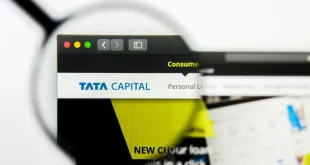
In the internet world, we choose the option of online payment for many works. While most people use UPI payment, there is also a section that uses cash. It is important to note that if any transaction, whether offline or online, exceeds a limit, the Income Tax Department sends a notice home. Today we are going to tell you how much transaction we can do. What is its limit and what can be done to avoid IT notices?
1- Depositing cash in bank account:
According to the rules of the Central Board of Direct Taxes (CBDT), if a person deposits Rs 10 lakh or more in cash in a financial year, it has to be reported to the Income Tax Department. Even if you are using more than one account, if someone is depositing money more than the prescribed limit, the Income Tax Department may ask you for information about the source of the money.
2- Depositing cash in fixed deposit.
The bank can inquire on transactions of Rs 10 lakh or more. The same rule also applies to transactions in FD. If someone deposits more than Rs 10 lakh in an FD in a financial year, the Income Tax Department may ask them about the source of the money.
3- Buying shares, mutual funds, debentures or bonds
Many people consider investing in shares, mutual funds, debentures or bonds as a good option. Such investments may also develop the habit of saving money in the investor, but if one uses large amounts of cash to buy shares, debentures or bonds or mutual funds, it also alerts the Income Tax Department.
4- Payment of Credit Card Bill:
If your monthly credit card bill exceeds Rs 1 lakh and you want to pay it in cash, the Income Tax Department may ask you about the source of your money. If you make a payment of Rs 10 lakh or more through any means online or offline in a financial year, the Income Tax Department may inquire you.
5- Property related transactions:
If you are doing cash transactions of Rs 30 lakh or more while buying property, then beware of the Income Tax Department.
 look news india
look news india


